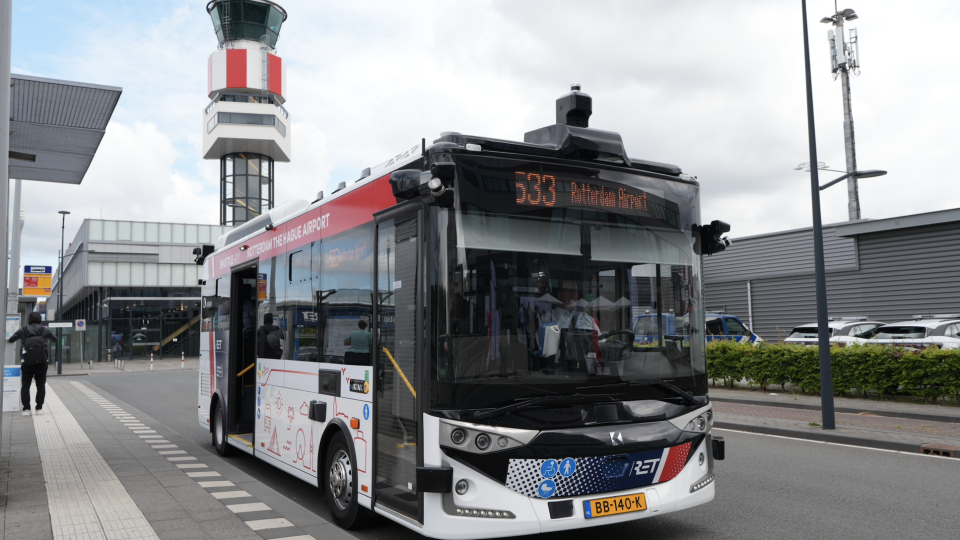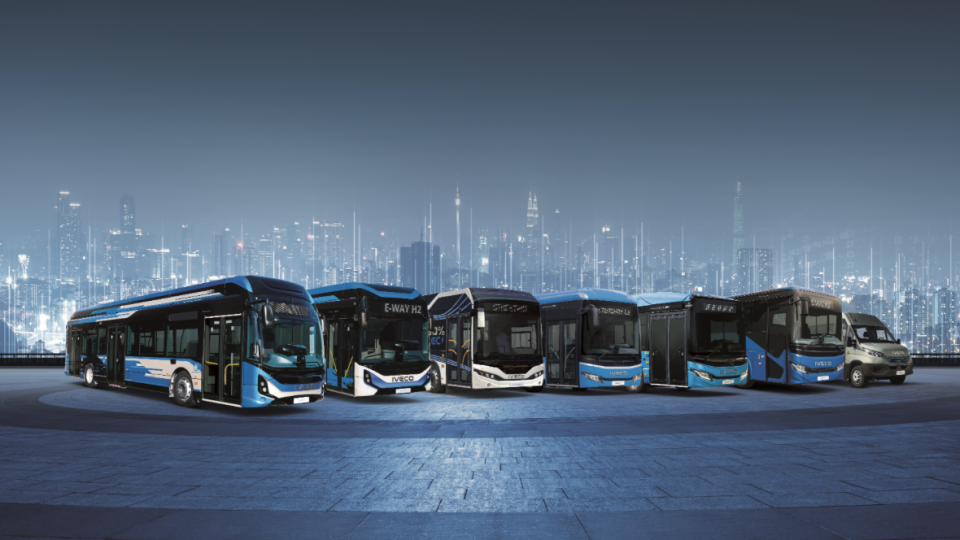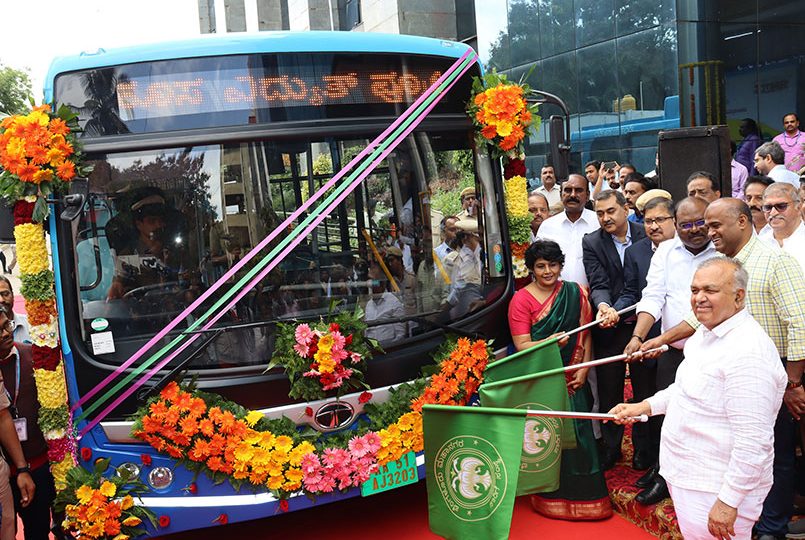Anja Wenmakers, SWB Bonn: “We cannot achieve electrification without funding”. Our interview
Seven e-buses in operation as of today, 10 more coming in 2025 (Mercedes eCitaro) and 40 more set for tendering in 2024 (and operational by 2026). The electrification’s offensive of SWB Bonn is on its way, with the goal of phasing out all diesel city buses by 2035. But concerns and inputs by the Bonn-based […]

Seven e-buses in operation as of today, 10 more coming in 2025 (Mercedes eCitaro) and 40 more set for tendering in 2024 (and operational by 2026). The electrification’s offensive of SWB Bonn is on its way, with the goal of phasing out all diesel city buses by 2035. But concerns and inputs by the Bonn-based carrier represent a good sumup of those of small-medium municipally-owned public transport companies around Germany.
We discussed with Anja Wenmakers, that besides being the managing director of SWB acts also as Board Member in VDV, the main challenges the company is facing today, with a deep dive into how financing (and the lack of it), strong competition, shortage of staff are shaping the present and future of mobility in Germany (and not only). A future that will see a growing role of sharing services, such as the goFlux, a local startup that is operating a digital rideshare platform together with SWB, with the goal of increasing the load factor of private cars supplementing (and not replacing!) the public transport offer.
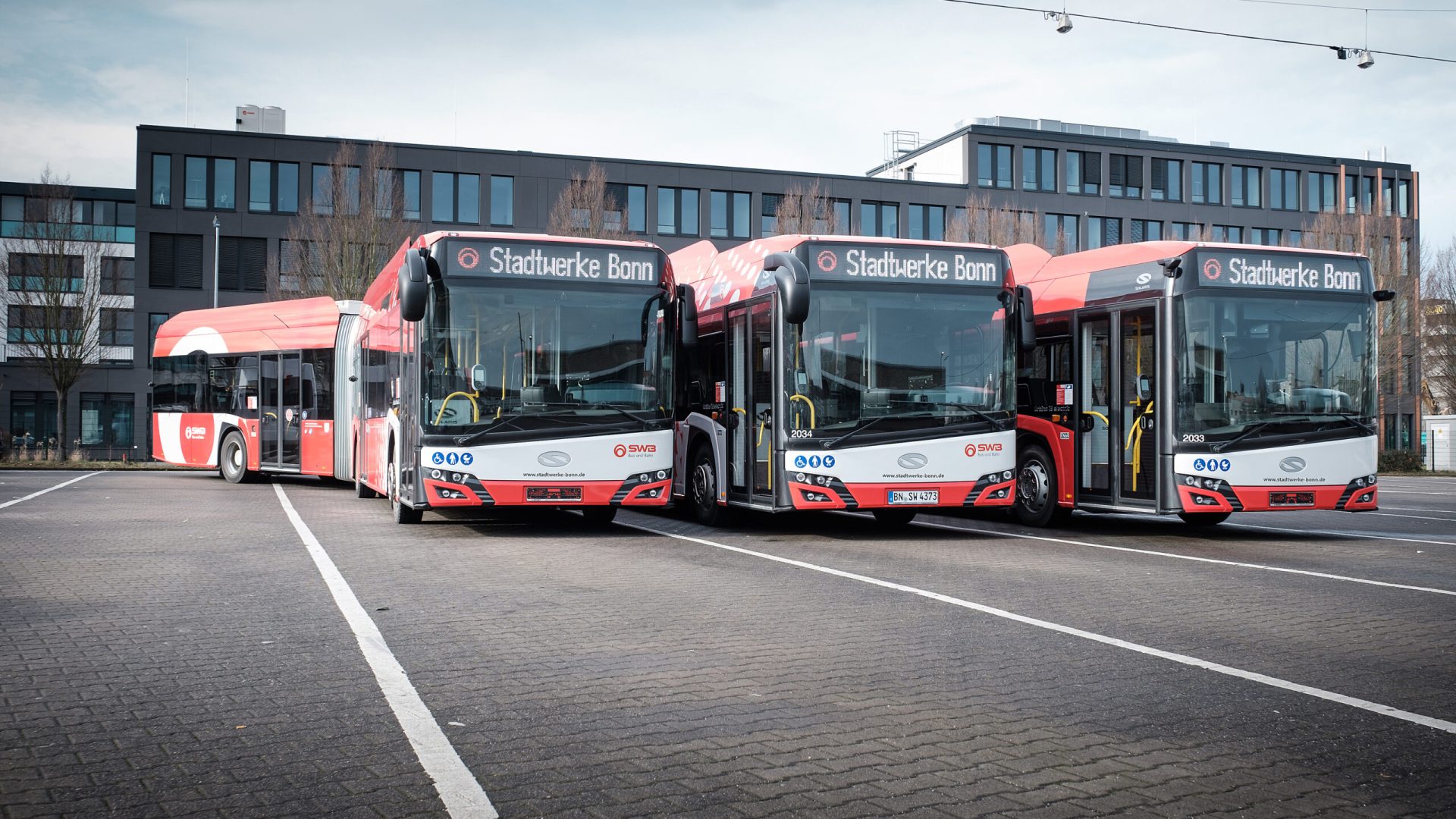
Anja Wenmakers, SWB Bonn: we cannot achieve electrification without fundings
Can you provide a picture of the company?
We are a municipal company and our owner is the city of Bonn so this makes the structure quite different from private ownerships. At the moment we have 100 trams and 230 buses. We’re going to get more: we are going to have 125 trams that is a quarter more than we do have now. Plus, we’re changing all our buses to electric buses. We have 1.400 employees, almost 800 are drivers.
Your company is programming an extension of both the fleet and the staff. At Mobility Move you made a presentation outlining the goal of having 20% more workers within 2024 and 2035, for instance…
I must say that we have a very good situation in Bonn because our owner wants to do this. So even if the regular Federal funding is supposedly stopped, the municipality is going to make sure that we get the money to do everything we need.
How will you be able to sustain it?
Europe decided that we need to have nothing but clean vehicles in 2035 and that is a decision that we cannot question any longer. As far as the funding is concerned we are working within the trade organizations such as VDV and UITP. There need to be a program, because, quoting a Germany saying, “If you order the music you have to pay for it”. Our federal state will fund something but Berlin doesn’t, this is why we working on the biggest scale because Bonn alone cannot do it.
Do you see any alternatives to the federal funding? According to some experts, for instance, leasing might be a solution…
Leasing in Germany is more for private company. As municipal company we have to own the assets and have the buses in our own property.
Competition, business models, financial tools…
is this something you could question? Do you think in the end leasing, if available, might help?
I don’t really think it helps because in the end of money needs to come from somewhere. If you just rent it and it’s not your property, because leasing in the end is a similar thing to not owning it, that will not make municipal owners happy. So I think it’s not really going to help a lot. And I’d like to add something…
Plese…
I read an article where it says that now we have to put pressure on the producers to lower the prices. Well, if I was on the producer side I would welcome this situation as it is very much because everybody has to buy so why should they lower the prices?
There’s no reason for that.
I think that what we need now are the fuels that will enable us to not buy so quickly in order to lower the emission. E-fuels might help keeping the buses that we have for a longer time because then emissions are lowered very much. I also see that more and more companies are developing buses and getting on the market. This makes buying e-buses easier than a few years ago. We ordered 10 buses from Mercedes and in the end there were way more companies who wanted to sell to us. Just a few time ago we had just two companies bidding.
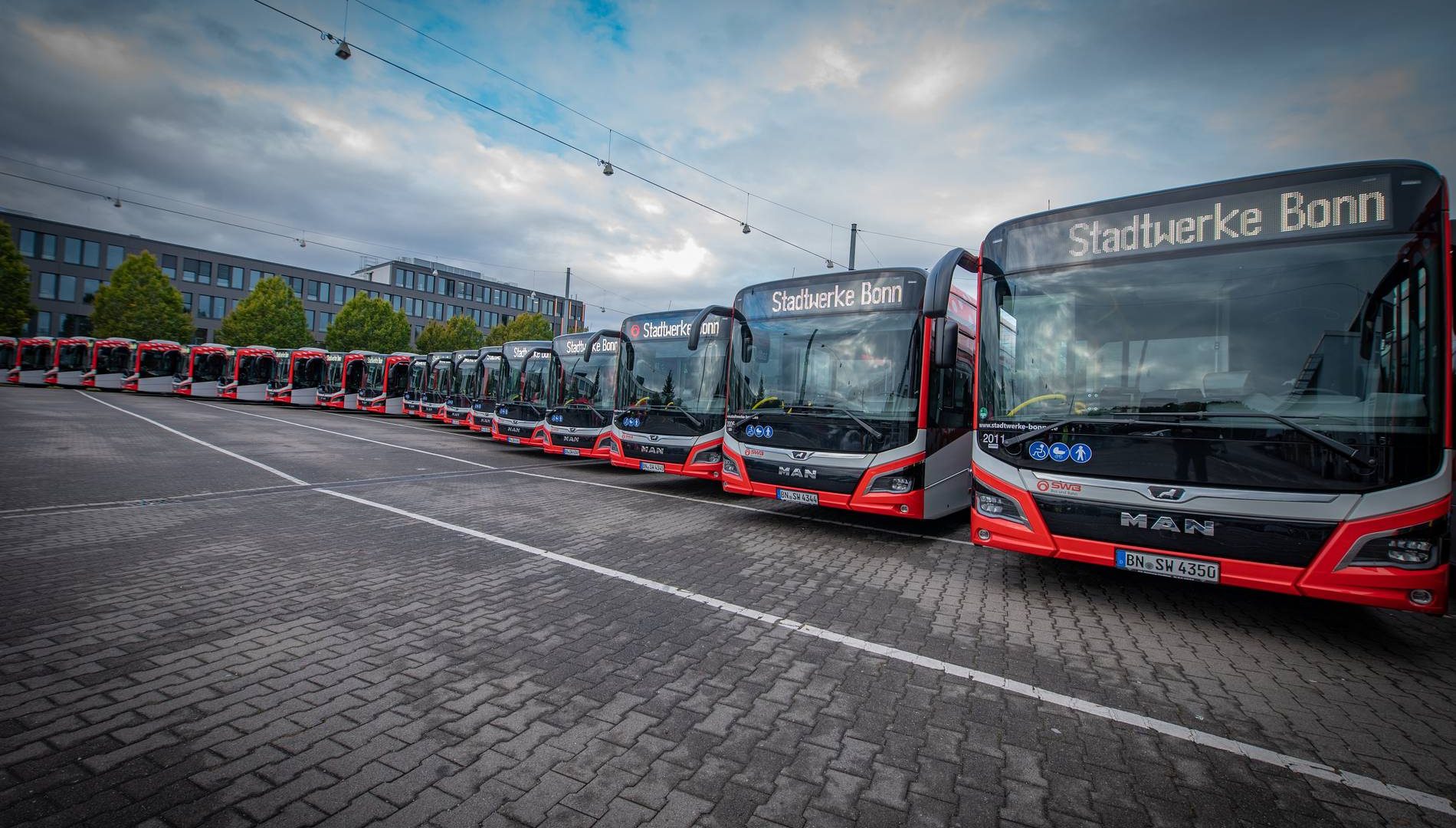
Cut of subsidies together with Western manufacturer having order books fully will lead to more Chinese and foreign manufacturer to enter and have success in the European market?
Of course China is really pushing into the market, I think it’s good for competition. Actually I want to buy in Europe and I would love to buy in Germany but as long as there is nothing there I can also buy the Chinese buses. At the time being, these are not for us because we need more kilometers than they offer as we are still not planning to do the charging outside the depot.
However, I don’t think it’s going to be a big success to try and put pressure on the manufacturers. More competition is something we need. An option would be that of putting together more companies and buy bigger volumes but I think this is not possible right now, not because we don’t find the companies who want to buy, but because at the moment there is no need on the OEMs side to say “Yes we’d be very happy to give you 25% off”. It might be a piece of the puzzle but it’s not the solution right now.
I’m really waiting for more competition because then this will make a bigger impact. If a batch of bigger cities will join say “we’re going to buy in China”, then the European produces might start to think about the situation.
Public transport in Bonn makes (just) 6% of emissions
Do you think PTOs in Germany will continue buying zero emission buses also without subsidies? How?
I really cannot imagine they stopping to buy e-buses because we have a law, the Clean Vehicle Directive, that is already implemented in all EU countries. The only way to to do this would be that Brussels might withdraw this directive but I don’t see this at the moment. Europe is again at the forefront, I think the goal to achieve neutrality is right but the way isn’t: it’s not helpful to go for it only in public transport. In Bonn public transport is the source of 6% of emissions. If we buy only e-buses we’ll reduce this figure to 1%. And lowering emissions of 5% will require millions of euros. As already mentioned, we use to say: “Who orders the music should pay for the music”. The problem is that the decision has been made already.
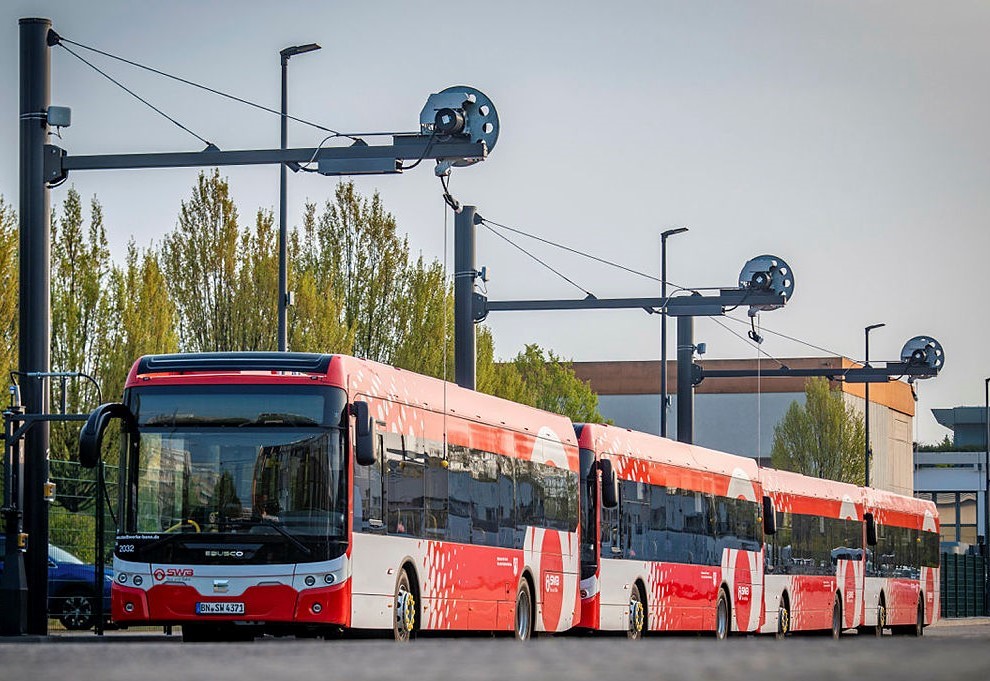
SWB is also a energy company: how this might become a value for public transport company?
One big advantage in Bonn is that our sister company is selling energy. So the money we spend in electricity stay within our company. It’s a small plus because energy must be payed at the end. The second thing is that we are re-building our three depots, as mentioned above we have also ordered new trams and we are going to have 25 trams more than before in four years time.
What about staff?
We are having small problems in finding engineers and people with high education levels. We find that young people like to be part of something good and purposeful for the future. But we have issues in finding bus drivers. We have to find new ways to find drivers. Right now there’s a problem of taking drivers from other companies in order to get enough drivers for our company. It’s not the right way to do, it doesn’t increase the number of drivers. We are running a social media campaign directed to people who are distributing meals for food delivery companies. We are aiming at that people in the language of the people of these people: it’s done in Polish, Turkish, Ukraine… We will train them.
On shortage of drivers
Is this campaign already started?
Yes, we had our first campaign out for two weeks, we had 80 applicants and 11 of them already started. And I should mention that social media campaign is very inexpensive, I know 11 drivers might not sounds that much but it’s just in two weeks. In the past we had six per month with much more effort.
We’re doing this campaign with other companies in the region. And we are also learning from that. For instance we leant that lorry drivers love being lorry drivers and are not going to change, therefore we are directing our efforts on other groups. Now we’re willing to to spread the information and the knowledge with other operators and countries so they can do the same
Recruiting is changing just as mobility services are changing…
We have to focus more on autonomous driving also because we would like to change the landscape within the cities for public transport, so it will be not just buses and not just trams, it’ll be on-demand, bicycles, car sharing… We are going towards a shared mobility concept that puts together different services.
Will on-demand transportation be part of your projects?
If we are talking about smaller vehicles autonomous driven complementing the service offered by big vehicles, yes, we’ll do that. But if it’s just on demand like a taxi bus, I don’t see how to finance it.
We are going to do everything that could bring people on shared mobility vehicles. That’s why goFlux carpooling system is working and other cities, such Hamburg, are following.
Aren’t you afraid this will take people out of public transport?
No It’s not taking users from transit, I think it’s going to to get more people into the public transport, into the collective mobility system, with people learning that they can make it without their private car. Bonn has great public transport network but in the outskirts service is less frequent. There needs to be other services to complement: bike sharing, car sharing etc.
If you had to put in order the main concerns of public transport operators in Germany, which would be your list?
Shortage of drivers and funding are in the first line. Also considering that Deutschlandticket is taking lots of money from us. The same tickets that we sold for between 70 to 200 euros just in the area of Bonn is now 49 euros. Before we had 70% revenue from customers, now it’s almost half, 35%. This year and next year we are still taking from the government a compensation on the basis of how much we took before 2019. But this will stop. Public transport is not possible without public support. Before Deutschlandticket we took 70% of our revenue from people using public transport, I think it’s wonderful to allow people to travel all over Germany with 49 euros and not relying that much on people who are using it. But there must be a clear way to finance it.




